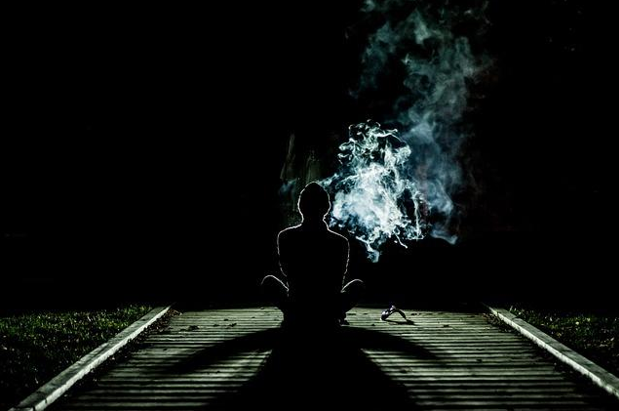Denial and Addiction
A look at how this toxic mix disrupts lives.
Has your recreational drug use morphed into addiction? This blog explains how to recognize the signs, end the denial, and get help for your substance abuse disorder.
A guest blog by Adam Cook
Rock bottom became the solid foundation on which I rebuilt my life. –J. K. Rowling
We use drugs and alcohol for many reasons. Some of us can’t cope with the stresses of daily life. Some feel they need it to relax or to be able to sleep. Some want to have fun with friends. Some use to cope with past traumas or chronic pain. And while many people use substances only occasionally with no overtly negative consequences, others are prone to addiction.
Denial is refusing to believe the truth. And for many addicts, denial will dominate their lives until they hit rock bottom. This core aspect of self-deception keeps us stuck.
Denial is particularly dangerous when we mix drugs and alcohol, particularly two depressants, such as alcohol and marijuana. Why? Not only do depressants affect inhibitions (e.g., tendency toward violence, risky sexual behavior, driving under the influence), but they can lead to depression or suicidal thoughts if used often in conjunction with one another. For example, alcohol use is correlated with depression in individuals suffering from PTSD, in part because they may use it as a coping mechanism. For this reason, it’s extremely important to know the warning signs of mixed substance abuse and how to approach a loved one who may be using.
Warning Signs of Addiction
The signs of alcohol and marijuana use are often very similar; the individual may exhibit a lack of interest in things that once brought them joy, they may have big changes in eating and sleeping habits, and they might have physical changes, such as weight loss or gain and red, watery eyes. They may isolate themselves from friends and family and begin having trouble at work or with legal matters. Money may begin to become an issue.
The Dangers of Combining Marijuana and Alcohol
One of the biggest dangers an individual faces when mixing alcohol and marijuana is the loss of judgment. Smoking can lead to impulsive behavior and makes the individual physically thirsty, which means they might ingest more alcohol than they would normally. The body would usually induce vomiting in order to get rid of all the excess alcohol, but marijuana prevents nausea. Alcohol poisoning is a very real problem and can lead to a trip to the E.R. or even death.
Alcohol and marijuana combined make a very powerful drug in the body, causing issues with a person’s sense of safety and leading to stress, anxiety, and even terror. In a situation where others are present, this could be dangerous indeed if the individual fears for their life or misinterprets a social situation. It can also lead to blacking out or having memory issues, causing the individual to have problems with their own personal safety.
It’s important to help a person understand their addiction. There’s a common misconception that marijuana isn’t addictive, but while it’s not as addictive as some other substances, it’s true that the drug can become addictive in certain people. The myth unfortunately can unfortunately cater to the user’s self-deception. Education on the subject is important, and there has been plenty of research on the topic which you can easily find by searching the internet.
Regardless of the potentially addictive effects of marijuana, alcohol is very well-known to be addictive, and societal acceptance of the substance can also fuel denial and self-deception. It’s much easier for a user to brush off concerns when a substance is so readily available and ingrained in our culture.
The Naked Truth is This: If you suspect a loved one is mixing these substances, don’t be afraid to approach them about it and let them know you’re concerned for their safety. Do not use judgmental phrases, but rather let them know you’re listening and that you just want to help. Often, an individual who is mixing substances may not even realize how dangerous it is. Forming a strong circle of support will help your loved one feel that they are not alone, and in some cases, may help them realize that there are deeper issues that need to be addressed.
If you or a loved one are struggling with an addiction, act now. Reach out to a trusted friend or family member and ask them to help you find a professional treatment center that’s right for you. Remember, you are not alone and you can overcome.
For more information, check out these resources:
Understanding Drug Use & Addiction
Cannabis Use and Risk of Psychiatric Disorders
Government Study Finds Danger in Mixing Marijuana and Alcohol
Copyright by Dr. Cortney S. Warren
TO READ MORE OF DR. CORTNEY'S WORK, SUBSCRIBE TO HER BLOG
Safe subscribe. You will have the opportunity to opt-out with every notice we send.


